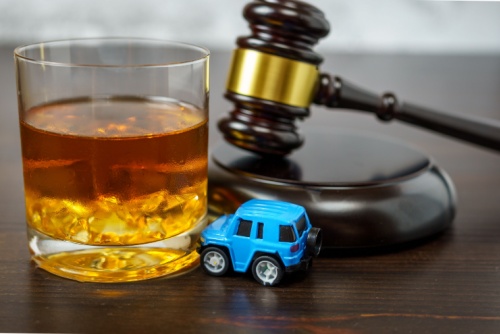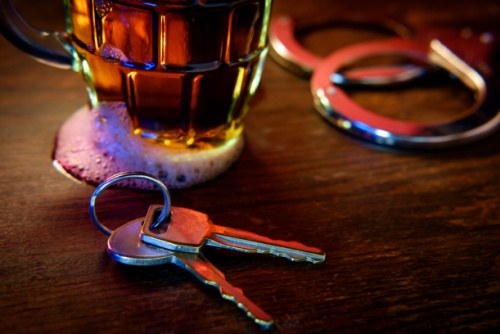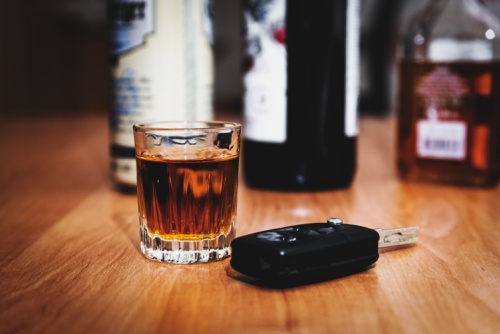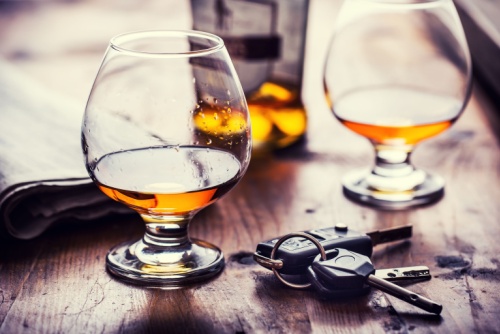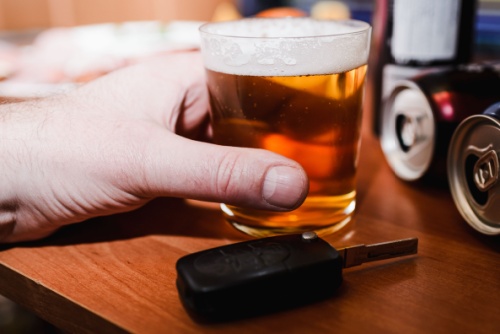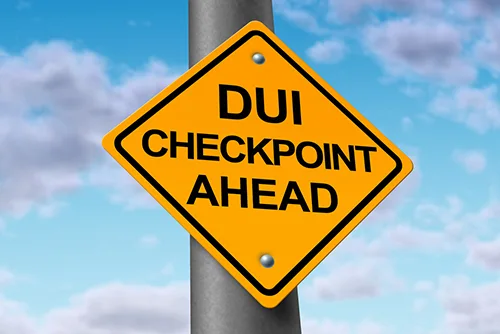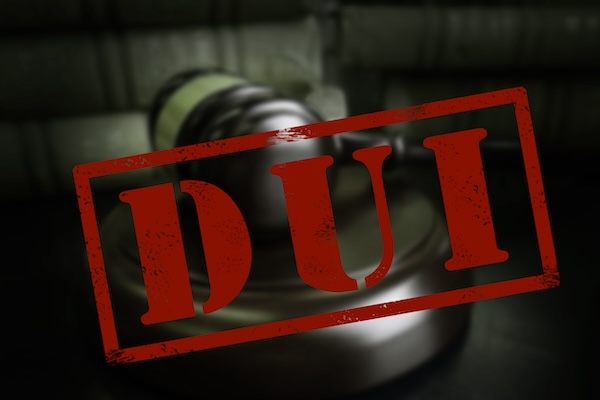Facing a DUI (Driving Under the Influence) charge in South Carolina can be a daunting and life-altering experience, carrying severe penalties and long-term consequences. However, not all DUI charges result in convictions. In some cases, it’s possible to have a DUI charge, which is classified as a criminal offense, reduced to reckless driving, a lesser offense with comparatively milder penalties.
One common method for achieving this reduction is through a plea bargain, where the defendant agrees to plead guilty to a lesser charge in exchange for a more lenient sentence. Understanding the legal process and knowing the potential for charge reduction can provide significant relief and hope for those accused. This blog explores the intricacies of DUI charges, the conditions under which they can be reduced to reckless driving, and the benefits of such a reduction in South Carolina.
Whether you are currently facing a DUI charge or seeking to understand the legal landscape better, this guide aims to provide comprehensive insights and practical advice on navigating this challenging situation.
Understanding DUI Charges in South Carolina
Driving Under the Influence (DUI) is a serious offense in South Carolina, with stringent laws and severe penalties designed to deter impaired driving. DUI cases often result in severe repercussions, including possible jail time, heavy fines, and the long-term impact of having a DUI conviction on one’s criminal record and insurance rates.
A DUI charge typically arises when a driver is found operating a vehicle with a blood alcohol concentration (BAC) of 0.08% or higher, or if they are impaired by drugs, including prescription medications. The penalties for a DUI conviction can be harsh, including hefty fines, license suspension, mandatory alcohol education programs, and even imprisonment.
In South Carolina, the legal system takes DUI offenses very seriously due to the potential risk they pose to public safety. Consequently, even a first-time DUI offender faces significant repercussions. South Carolina law addresses DUI charges and penalties, including the expungement of DUI charges and the implications of repeat offenses.
Subsequent offenses lead to progressively harsher penalties, including longer license suspensions, higher fines, and extended jail time. Understanding the nature of DUI charges and their implications is crucial for anyone facing such accusations. This foundational knowledge sets the stage for exploring how a DUI charge might be reduced to a lesser offense like reckless driving.
What is Reckless Driving
Reckless driving is a serious traffic offense that occurs when a driver operates a vehicle with a willful disregard for the safety of persons or property. Reckless driving offenses include excessive speeding, aggressive driving, ignoring traffic signals, and weaving in and out of traffic. In South Carolina, reckless driving is defined by law as driving in a manner that shows a blatant indifference to the potential consequences.
Unlike DUI, which specifically involves impairment by alcohol or drugs, reckless driving can include a variety of dangerous behaviors such as excessive speeding, aggressive driving, ignoring traffic signals, and weaving in and out of traffic.
A conviction for reckless driving carries its own set of penalties, though generally less severe than those for a DUI. Penalties for reckless driving in South Carolina may include fines, points on the driver’s license, increased insurance premiums, and potential jail time. Despite being a less serious charge than DUI, a reckless driving conviction still reflects poorly on a driver’s record and can have significant consequences. Understanding what constitutes reckless driving is essential for anyone seeking to have their DUI charge reduced to this lesser offense.
The Process of Reducing DUI to Reckless Driving
Reducing a DUI charge to reckless driving in South Carolina involves a legal process that typically requires the expertise of an experienced defense attorney. The process begins with the attorney reviewing all the evidence related to the DUI arrest, including police reports, breathalyzer or blood test results, and any video footage of the traffic stop and field sobriety tests. An effective DUI defense strategy often involves scrutinizing these elements to identify any procedural errors or rights violations.
The attorney will then identify any weaknesses or inconsistencies in the prosecution’s case. Common grounds for challenging a DUI charge include improper administration of sobriety tests, lack of probable cause for the traffic stop, or issues with the accuracy and calibration of breathalyzer equipment.
If the attorney finds substantial flaws in the case, they may negotiate with the prosecutor to reduce the charge from DUI to reckless driving. Hiring an experienced DUI lawyer is crucial in this context, as their knowledge and negotiation skills can significantly improve the chances of achieving a favorable outcome.
Negotiation is a critical part of the process. The defense attorney presents the identified weaknesses to the prosecutor and argues that a reckless driving charge is more appropriate given the circumstances. Prosecutors may agree to reduce the charge if they believe that securing a conviction for DUI is uncertain or if the defendant has no prior offenses and demonstrates willingness to comply with other conditions, such as attending alcohol education programs or performing community service.
In some cases, the defense may also file pre-trial motions to suppress certain pieces of evidence that were obtained unlawfully, further strengthening their position. If the prosecutor agrees to the reduction, the defendant will typically enter a plea to the lesser charge of reckless driving. This resolution often results in lesser penalties and fewer long-term consequences compared to a DUI conviction, making it a favorable outcome for many defendants.
Factors Influencing Charge Reduction
Several factors can influence the likelihood of having a DUI charge reduced to reckless driving in South Carolina. Understanding these factors can help defendants and their attorneys develop a stronger case for reduction.
In the context of a South Carolina DUI case, pleading guilty to a reduced charge can have significant implications, especially when a defendant has a high blood alcohol concentration (BAC) reading that could be used as strong evidence in court.
- Evidence Strength: The quality and quantity of evidence against the defendant play a crucial role. Weak or questionable evidence, such as improperly conducted field sobriety tests, inaccuracies in breathalyzer results, or lack of probable cause for the initial traffic stop, can increase the chances of a charge reduction.
- Defendant’s Criminal History: First-time offenders with no prior criminal record, especially those with no previous DUI arrests, are more likely to have their charges reduced. A clean driving record and positive character references can also be beneficial.
- Severity of the Offense: The circumstances surrounding the DUI arrest, such as the defendant’s blood alcohol concentration (BAC), whether there was an accident or injury, and the level of impairment observed, can impact the decision. Lower BAC levels and the absence of aggravating factors (e.g., accidents or injuries) are favorable for charge reduction.
- Legal Representation: The skill and experience of the defense attorney can significantly influence the outcome. Experienced DUI attorneys are better equipped to identify weaknesses in the prosecution’s case, negotiate effectively with prosecutors, and present compelling arguments for charge reduction.
- Prosecutor’s Discretion: Ultimately, the decision to reduce a DUI charge to reckless driving lies with the prosecutor. Some prosecutors may be more willing to negotiate, especially if they recognize potential weaknesses in their case or if the defendant shows remorse and a willingness to take corrective actions, such as attending alcohol education programs or completing community service.
- Mitigating Circumstances: Personal circumstances, such as the defendant’s cooperation during the arrest, participation in rehabilitation programs, or other mitigating factors that demonstrate responsibility and a commitment to avoiding future offenses, can positively influence the prosecutor’s decision.
- Public Interest: Considerations related to public safety and interest can also affect the outcome. If reducing the charge serves the interests of justice and public safety without compromising accountability, prosecutors may be more inclined to agree to a lesser charge.
By understanding and addressing these factors, defendants and their attorneys can better navigate the legal process and increase the likelihood of a favorable outcome.
Benefits of Reducing DUI to Reckless Driving
Reducing a DUI charge to reckless driving in South Carolina offers several significant benefits for defendants. This reduction can positively impact various aspects of a person’s life, from legal consequences to personal and professional repercussions. However, it is important to note that reckless driving convictions still carry penalties such as fines and points on a driving record, and repeated offenses can lead to more significant repercussions, including license suspension and increased insurance rates.
Additionally, receiving two reckless driving convictions within a 5-year period results in a 90-day suspension of driving privileges and additional requirements like carrying SR-22 insurance for three years. Understanding these rules is crucial, especially in the context of legal representation for DUI charges. Here are some key benefits:
Reduced Penalties
One of the most immediate benefits is the reduction in penalties, including the possibility of avoiding a license suspension. DUI convictions typically carry harsher penalties, including higher fines, longer license suspensions, and potential jail time. Reckless driving charges, on the other hand, generally result in lower fines, shorter suspensions, and less severe punishments overall.
Avoiding a DUI Conviction
Having a DUI conviction on one’s criminal record can have long-term consequences, including increased insurance rates, difficulties finding employment, and potential damage to one’s reputation. A reckless driving charge, while still serious, does not carry the same stigma and can be more easily explained or mitigated in personal and professional contexts.
License Consequences
DUI convictions often lead to extended driver’s license suspensions or revocations, significantly impacting one’s driving privileges. Reducing the charge to reckless driving usually results in a shorter suspension period, allowing individuals to regain their driving privileges sooner and maintain greater mobility and independence.
Employment Opportunities
Many employers conduct background checks and may view a DUI conviction unfavorably, potentially affecting current and future job prospects. A reckless driving charge is less likely to impact employment opportunities, as it is perceived as a less severe offense.
Insurance Rates
A DUI conviction can lead to significant increases in auto insurance premiums. Insurance companies view DUI offenses as high-risk, resulting in higher rates. Reckless driving charges, while still impacting insurance, typically lead to smaller rate increases compared to DUI convictions.
Reduced Criminal Record Impact
While both DUI and reckless driving charges will appear on a criminal record, the long-term consequences of DUI are generally more severe. This can be beneficial when undergoing background checks for various purposes, such as housing applications, educational opportunities, or professional licenses.
Personal and Social Consequences
The social stigma associated with a DUI and reckless driving charges can affect personal relationships and community standing. Reducing the charge to reckless driving can help mitigate some of these personal and social repercussions, allowing individuals to better maintain their social and familial relationships.
Flexibility in Plea Bargains
Agreeing to a plea bargain that reduces a DUI to reckless driving often demonstrates a willingness to accept responsibility while minimizing the harsher consequences of a DUI conviction. While some states allow for a reduction to ‘wet reckless’—a form of reckless driving involving alcohol—South Carolina does not have this option, with plea agreements typically resulting in ordinary reckless driving instead. This can also lead to more favorable outcomes in terms of probation terms and court-mandated programs.
By seeking a reduction from DUI to reckless driving, defendants can significantly lessen the negative impacts on their lives, allowing them to move forward with fewer obstacles and greater opportunities for rehabilitation and reintegration.
Legal Representation and Advice
Navigating the complexities of reducing a DUI charge to reckless driving in South Carolina necessitates skilled legal representation. An experienced defense attorney can provide invaluable guidance and advocacy throughout the process. Here’s why having legal representation is crucial:
Hiring an experienced DUI lawyer can significantly improve your chances of achieving a favorable outcome, such as reduced charges, through effective negotiation and understanding of local laws.
- Expertise in DUI Laws: A seasoned DUI attorney will have a thorough understanding of South Carolina’s DUI and reckless driving laws. They can interpret the nuances of the law to identify opportunities for reducing charges and defending against the accusations.
- Case Evaluation: A lawyer can meticulously review the details of your case, including the circumstances of the arrest, the evidence presented, and any procedural errors that may have occurred. This evaluation is essential in building a strong defense and negotiating a charge reduction.
- Negotiation Skills: Experienced attorneys are skilled negotiators who can effectively communicate with prosecutors to negotiate a plea deal. They can present compelling arguments for why a DUI charge should be reduced to reckless driving, emphasizing mitigating factors and the defendant’s willingness to comply with court requirements.
- Court Representation: If your case goes to court, having a knowledgeable attorney represent you can significantly impact the outcome. They can advocate on your behalf, present evidence, cross-examine witnesses, and make persuasive arguments to the judge and jury.
- Guidance Through Legal Procedures: The legal process can be daunting and confusing, especially for those unfamiliar with it. An attorney can guide you through each step, ensuring you understand your rights, the charges against you, and the potential outcomes. They can also assist with filing necessary paperwork and meeting critical deadlines.
- Strategic Defense Planning: A good defense attorney will develop a strategic defense plan tailored to your specific case. This plan may include challenging the validity of breathalyzer or blood test results, questioning the legality of the traffic stop, and highlighting any violations of your constitutional rights.
- Minimizing Consequences: Even if a reduction to reckless driving is not possible, a skilled attorney can work to minimize the consequences of a DUI conviction. This might involve negotiating for lesser penalties, such as reduced fines or shorter license suspensions, and advocating for alternative sentencing options like community service or alcohol education programs.
- Support and Advice: Beyond the legal aspects, attorneys provide support and advice to help you cope with the stress and anxiety of facing criminal charges. They can offer practical advice on how to manage the personal and professional impacts of a DUI charge.
- Long-Term Impact Consideration: An attorney can help you understand the long-term impacts of a DUI conviction versus a reckless driving charge. They can advise on steps to take post-conviction to mitigate these impacts, such as expungement options and strategies for rebuilding your reputation.
Securing legal representation when facing DUI charges in South Carolina is essential for achieving the best possible outcome. A knowledgeable and experienced attorney can make a significant difference in reducing charges, minimizing penalties, and helping you move forward with your life.
Conclusion
Navigating DUI charges in South Carolina can be a daunting and overwhelming experience, but understanding the possibility of reducing a DUI to a reckless driving charge offers hope for a more favorable outcome. By comprehending the nature of DUI and reckless driving charges, recognizing the benefits of charge reduction, and being aware of the factors influencing this process, individuals can better prepare for their legal journey.
Legal representation is crucial in these situations, as a knowledgeable attorney can provide the expertise, negotiation skills, and strategic defense necessary to achieve the best possible result. Reducing a DUI charge to reckless driving can lead to lesser penalties, fewer long-term consequences, and an opportunity for individuals to regain control of their lives. If you find yourself facing a DUI charge in South Carolina, seek professional legal advice to explore all available options and ensure your rights are protected throughout the process.
